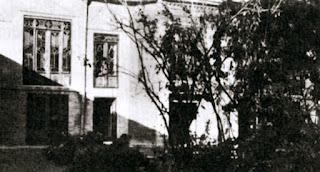In about 1848 Mulla Husayn left the city of Mashhad, in the
province of Khurasan, north-east of Tihran, where he had been since 1844.
Desiring to see his Lord Who was imprisoned in the castle of Mah-Ku in the
province of Adhirbayjan, north-west of Tihran, he told his friends: “I have
vowed to walk the whole distance that separates me from my Beloved. I shall not
relax in my resolve until I shall have reached my destination.” – a distance of
about 900 miles. His friends, however, offered assistance with a more conventional
and comfortable mode of travel for his long and arduous journey, but Mulla Husayn
declined their help. Upon the insistence of one of his friends, Mulla Husayn finally
allowed him to act as his servant throughout his pilgrimage to Ádhirbayján. On
his way to Tihran, Mulla Husayn was enthusiastically greeted by the believers
in the different towns through which he passed. They addressed to him the same
request and received from him the same reply.
When Mulla Husayn arrived in Tihran he was visited by many
believers. Nabil, the great Baha’i historian recorded what he himself heard from
Áqáy-i-Kalím, Bahá’u’lláh’s faithful brother, about Mulla Husayn:
“When Mulla Husayn arrived at Tihran, I, together with a
large number of believers, went to visit him. He seemed to us the very
embodiment of constancy, of piety and virtue. He inspired us with his rectitude
of conduct and passionate loyalty. Such were the force of his character and the
ardour of his faith that we felt convinced that he, unaided and alone, would be
capable of achieving the triumph of the Faith of God.”
Because of Mulla Husayn’s popularity, arrangements were made
to usher him secretly into the presence of Bahá’u’lláh. Soon after his
interview, Mulla Husayn proceeded to Adhirbayjan.
(Adapted from the Dawn-Breakers, by Nabil,
translated and edited by Shoghi Effendi)





















